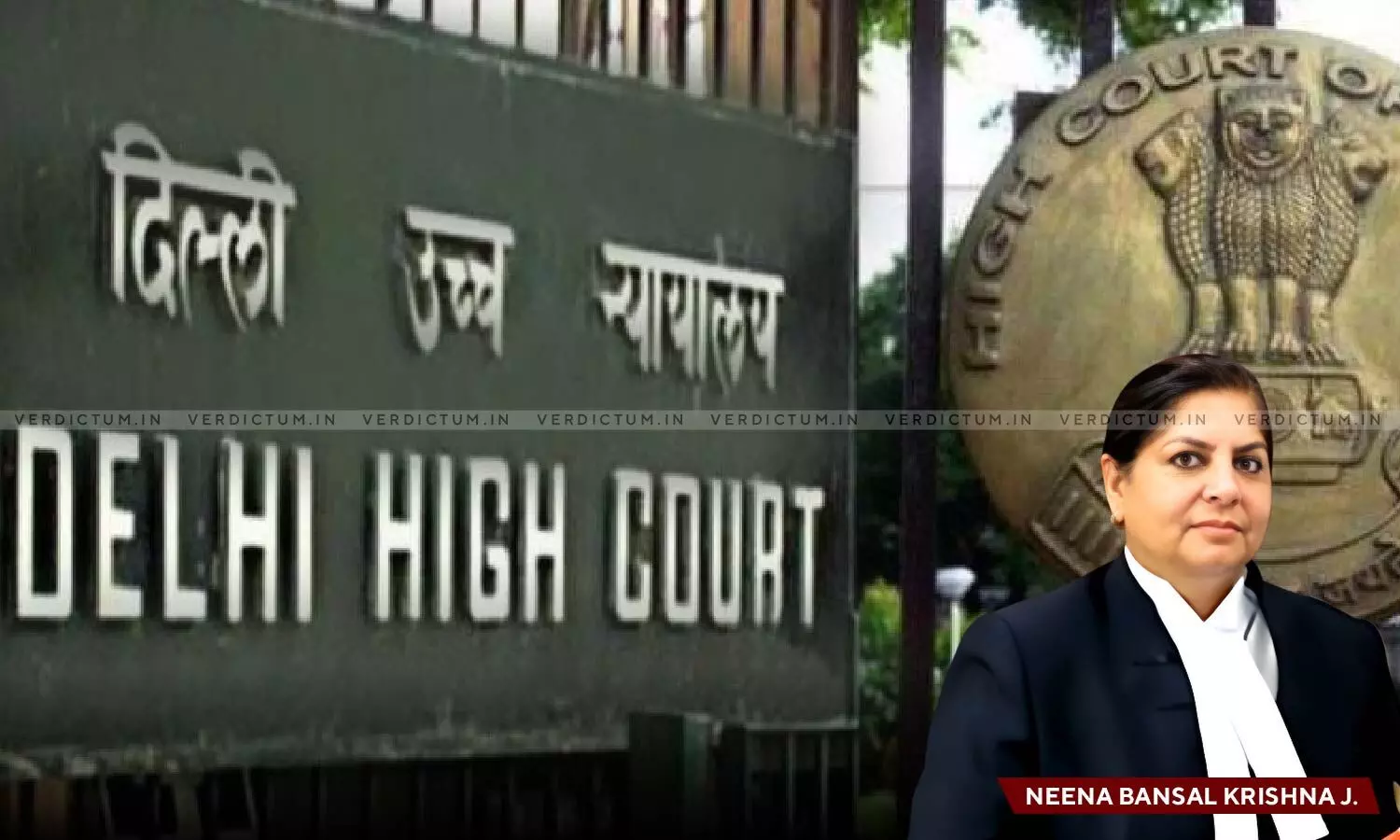
Justice Neena Bansal Krishna, Delhi High Court
Merely Claiming Financial Inability, Without Providing Further Evidence, Holds No Weight: Delhi High Court Upholds Conviction Under Income Tax Act
 |
|The Criminal Revision Petition before the Delhi High Court was filed against the Order upholding the conviction and order on sentence of the petitioner under section 276C (2) of the Income Tax Act.
The Delhi High Court upheld an order convicting the assessee under Section 276C (2) of the Income Tax Act and observed that merely claiming financial inability, without providing any further explanation or evidence, holds no weight.
The Criminal Revision Petition before the High Court was filed under Section 401 of the Code of Criminal Procedure, 1973 (Cr.P.C.) by the Petitioner, against the Order of the Additional Sessions Judge (ASJ) upholding the conviction and order on Sentence of the Petitioner under Section 276C (2) of the Income Tax Act.
The Single Bench of Justice Neena Bansal Krishna observed, “He may have stopped his business in the year 1996 after doing the export business for three years, but that alone does not support any inference of financial indigency. Merely claiming financial inability, without providing any further explanation or evidence, holds no weight and is clearly untenable.”
Advocate Salil Kumar Jha represented the Petitioner while APP Nawal Kishore Jha represented the Respondent.
Factual Background
The petitioner assessee was engaged in the business of export of plastic items to Dubai, New York, US through State Trading Corporation, which he carried on for a period of three years from 1993 to 1996. He exhausted his pending Export Orders and did not continue his business. During the period between 1993 to 1995, he advanced a sum of Rs. 4,53,50,000 by Account Payee Cheques in the name of Subhash Chand Kathuria (SCK), his elder brother-in-law and in the name of his business Units. From this amount, SCK paid Rs 2,90,48,005 to various parties on behalf of the Petitioner, and the net advance remaining with SCK and his businesses was Rs 4,24,45,195.
The Petitioner submitted that he was unable to pay his tax liability in the year 1994-95. The Assessing Officer (AO) recovered the demand of Rs 5,33,738 for the Assessment Year 1994-95 from the bank account of SCK and his businesses, which in fact belonged to the Petitioner but were lying in the accounts of SCK. The Income Tax Department filed a Complaint before the Metropolitan Magistrate against the Petitioner, Harish Chadha, for defaulting in making payment of Income tax for the Assessment Year (AY) 1995-96. The Commissioner, Income Tax accorded sanction under Section 279 of the Income Tax Act, followed by the filing of a Criminal Complaint by the Income Tax Officer.
The Additional Chief Metropolitan Magistrate (ACMM) convicted the Assessee/Petitioner under Section 276C(2) of the Income Tax Act and sentenced him accordingly. The Petitioner’s appeal was rejected. Aggrieved thereby, the petitioner approached the High Court.
Reasoning
The Bench, at the outset, noted that the petitioner had been charged for the offence under Section 276C (2) of the Income Tax Act, for wilful evasion of payment of Income Tax for the Assessment year 1995-1996. It was explained by the Bench that the gravamen of this Section is that there should be “willful attempt of an Assessee to evade the payment of Tax, penalty or interest to make the offence punishable.”
It was noticed that the Petitioner herein did not submit his Income-Tax Assessment for the Financial Year 1995-1996, though he filed his Auditors’ Report in 1996, which contained the names of the Debtors. On account of default in paying the Income-Tax Returns for the AY-1995-1996, Show Cause Notices were admittedly served upon the Petitioner and thereafter, the Assessment Order was made for the Year 1995-1996 wherein his liability to pay the Income-Tax, including the interest, was calculated as Rs.38,13,620. The Petitioner’s defence was essentially that the failure to make the payment was not ‘willful’ but on account of his ‘financial constraints’.
As per the Bench, it was rightly observed by the ASJ in the impugned Order that the Petitioner himself was not sure of the nature of the financial transaction between him and SCK, his co-brother. It was further concluded by the ASJ that it was a case of disputed business transactions, which needed evidence to be established and proved. “Such like transactions cannot be covered under the words “any person who holds the money as referred to under Section 226 of the Income Tax Act”, the Bench held.
Thus, considering his business turnover for the relevant period, it was established beyond reasonable doubt that the nonpayment of Income Tax Returns for the AY 1995-1996 was willful and not on account of financial inability. Thus, dismissing the Petition, the Bench confirmed the view of the ASJ in upholding the conviction under Section 276C (2) of the Income Tax Act.
Cause Title: Harish Chadha v. State ( Neutral Citation: 2025:DHC4893)
Appearance
Petitioner: Advocate Salil Kumar Jha
Respondent: APP Nawal Kishore Jha, Sr. Standing Counsel Shlok Chandra, Jr. Standing Counsel Naincy Jain, Jr. Standing Counsel Madhavi Shukla